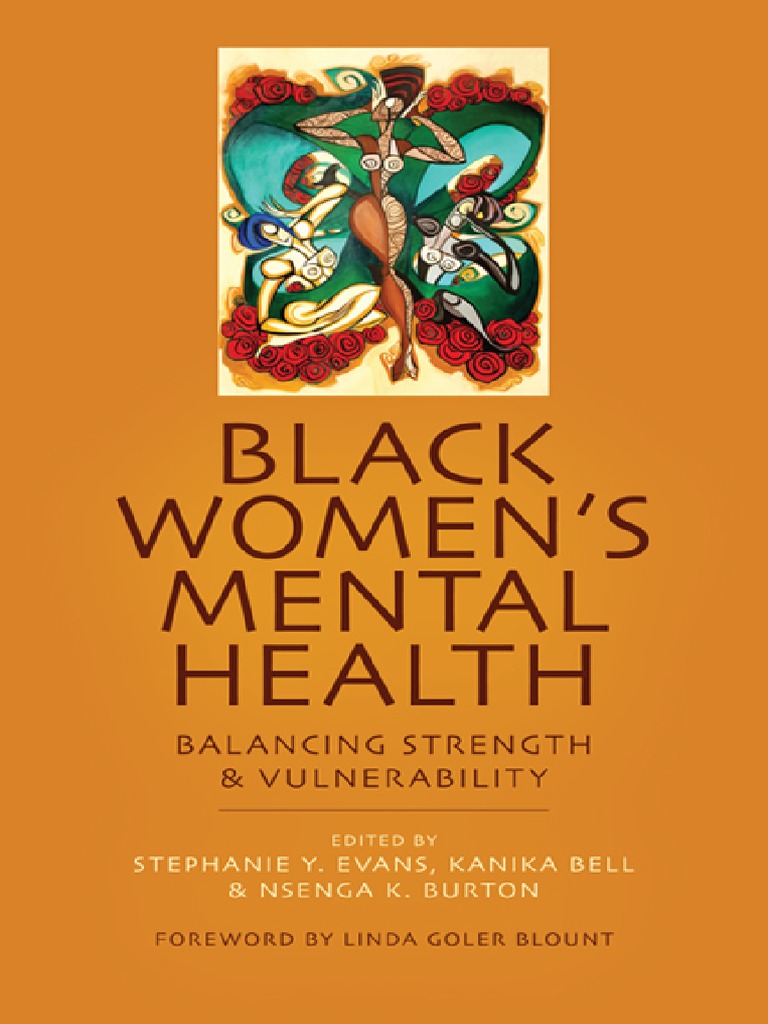Books addressing Black women’s mental health are pivotal in exploring the intersections of race, gender, and psychological well-being. These texts delve into the unique cultural contexts that shape the experiences of Black women, offering pathways to healing that honor resilience while addressing vulnerability. In this discourse, we will examine various types of content that readers can anticipate when engaging with literature on this subject, framing the discussion through a cultural relativism perspective that enriches understanding and promotes empowerment.
1. The Historical Context of Mental Health in Black Communities
Many of these books commence with an exploration of the historical underpinnings of mental health perceptions within Black communities. They draw upon the legacy of systemic oppression, from slavery to contemporary discrimination, illustrating how these factors contribute to mental health challenges. Readers are presented with a nuanced analysis of historical trauma and its lingering effects on mental health, providing essential context that frames the subsequent discussions on healing and empowerment.
2. Cultural Nuances and Societal Expectations
Another prevalent theme in literature on Black women’s mental health is the examination of sociocultural expectations. Authors elucidate how cultural norms impact emotional expression and mental health perceptions. The concept of the “strong Black woman” archetype is dissected, revealing the pressures to embody strength at the expense of vulnerability. Such discussions encourage readers to reconsider mainstream narratives about femininity and resilience, fostering a more inclusive understanding that honors individual experiences across diverse contexts.
3. Intersectionality in Mental Health
Prominent works in this field often incorporate intersectional theory to unpack the multifaceted experiences of Black women. By considering the interplay of race, gender, socioeconomic status, and sexual orientation, these texts highlight the unique struggles that arise from intersecting identities. Readers can expect comprehensive discussions that challenge monolithic portrayals, illuminating the varied realities that inform mental health experiences among different demographic segments within the Black community.
4. Personal Narratives and Memoirs
One of the most impactful formats in this genre is the personal narrative or memoir. These works offer an intimate glimpse into the lived experiences of Black women grappling with mental health issues. Authors recount their journeys through darkness and towards healing, imbuing their stories with authenticity and vulnerability. Readers are not only informed but also inspired by these accounts, which exemplify resilience and the transformative power of self-acceptance and community support.
5. Psychological Frameworks and Healing Modalities
Literature on Black women’s mental health frequently explores various psychological frameworks and healing modalities relevant to their experiences. Readers can engage with therapeutic approaches that resonate culturally and emotionally. Texts may discuss practices such as narrative therapy, mindfulness, and community healing sessions that draw from African cultural traditions. These methodologies encourage a holistic understanding of mental health, advocating for healing practices that celebrate cultural heritage while addressing individual psychological needs.
6. Community and Collective Healing
The emphasis on community as a cornerstone of healing is a significant topic within these works. Many authors advocate for the power of communal support systems in facilitating mental wellness. Through workshops, discussion groups, and collective storytelling, they illustrate how shared experiences foster solidarity and resilience. This communal approach counters isolating narratives, offering a framework through which healing can occur not just on an individual level, but collectively, amplifying voices that are often marginalized in broader society.
7. Educational Resources and Practical Strategies
In addition to theoretical explorations and personal narratives, books on this topic often provide practical strategies for managing mental health. These may include self-care routines, stress management techniques, and resources for professional help. By equipping readers with tangible tools, authors empower Black women to advocate for their mental health and navigate challenges effectively. The provision of resources encourages readers to take proactive steps toward their well-being, reinforcing the message that seeking help is a strength, not a weakness.
8. The Role of Advocacy and Activism
A significant aspect of the discourse surrounding Black women’s mental health is the intersection with advocacy and activism. Many authors emphasize the importance of not only addressing personal mental health but also engaging in broader social justice efforts. They argue that mental health cannot be viewed in isolation from the systemic inequities that contribute to distress. By encouraging readers to participate in activism, these texts promote the idea that mental health initiatives must be coupled with efforts to dismantle oppressive structures, fostering a comprehensive approach to well-being.
9. Future Directions and New Paradigms
Finally, literature on Black women’s mental health often contemplates future directions and emerging paradigms. Authors may discuss shifts in societal attitudes towards mental health within Black communities and the importance of integrating these discussions into larger public discourse. As awareness grows, the hope is that mental health resources will become increasingly accessible, reflecting an evolving understanding that is both culturally responsive and egalitarian.
In summary, the exploration of Black women’s mental health through literature provides a rich tapestry of narratives, theories, and practical insights. By employing a cultural relativism perspective, these books illuminate the intricate connections between identity, systemic oppression, and mental well-being. As readers engage with these texts, they are invited into a journey of understanding, healing, and empowerment that speaks to the unique experiences of Black women while advocating for a more equitable future in mental health discourse.
